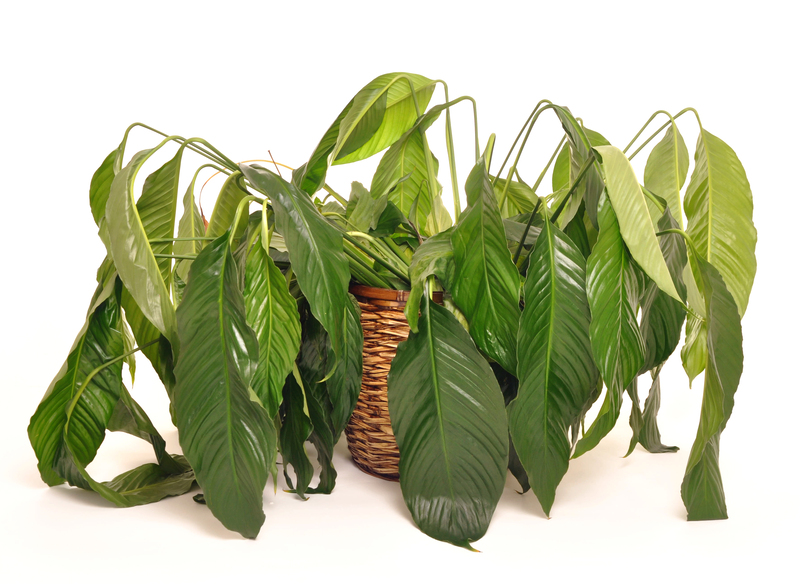Fresh Starts: 9 Key Gardening Insights for the Uninitiated
Posted on 22/08/2025
Fresh Starts: 9 Key Gardening Insights for the Uninitiated
Are you dreaming of a lush backyard or pots overflowing with vibrant flowers, but feel overwhelmed by the gardening basics? Every seasoned green thumb started where you are now. Whether you have a plot of land or only a balcony, this guide to fresh gardening starts covers practical tips, insights, and strategies tailored for beginners. Discover everything you need to kickstart your gardening journey, avoid common pitfalls, and transform your thumb from brown to green!
1. Understanding Your Space: Evaluate Your Garden Site
Before you plant a single seed, it's crucial to get to know your gardening site. The key to a successful gardening fresh start lies in understanding the light, soil, and environment you have to work with.
- Sunlight: Track where the sun falls during the day. Most vegetables and flowers need at least 6 hours of direct sunlight.
- Soil quality: Good soil is the foundation. Test your earth's drainage and texture by observing how water absorbs and feeling for grit or clay.
- Space: Measure your space, whether it's a small windowsill, patio, or backyard. It will determine the types of plants you can grow.
- Water access: Proximity to a water source is vital for healthy, happy plants.
Take time to make simple sketches or notes about your gardening area. A thoughtful approach to your growing environment ensures that your fresh start in gardening is built on solid ground.

2. Start Simple: Choose Easy Plants for Beginners
Jumping into gardening with high-maintenance or exotic plants can be discouraging. If you're just getting your hands dirty, opt for easy plants for newcomers. Here are some stellar choices:
- Lettuce and salad greens--quick-growing, forgiving, and can be harvested several times.
- Sunflowers--robust, full of personality, and their size makes them fun to grow.
- Radishes--perfect for impatient gardeners, sprouting fast with minimal care.
- Herbs like basil, mint, and parsley--ideal for pots and windowsills, plus they add flavor to your meals!
Starting with these plants builds confidence and offers almost instant gratification. Remember, gardening is a learning process--choose the right plants and you'll enjoy quick, rewarding results.
3. Know Your Seasons: Plant at the Right Time
One of the critical insights for new gardeners is synchronizing your planting with the seasons. All plants have preferred growing conditions, and planting at the wrong time can doom your efforts.
- Cool-season plants: Spinach, peas, and broccoli thrive in spring and fall.
- Warm-season plants: Tomatoes, peppers, and pumpkins love the heat of late spring and summer.
Use a local planting calendar to learn optimal times for sowing seeds and transplanting seedlings in your region. Mastering this rhythm is a signature move for successful fresh gardening starts.
4. Prepare the Soil: The Foundation of Garden Health
Healthy soil = healthy plants. Don't overlook this essential gardening insight. Even a small investment into soil preparation can yield massive results.
- Remove weeds and old plant debris from your site.
- Loosen the soil with a garden fork or trowel to improve water absorption and root growth.
- Add organic matter: Mix in compost, worm castings, or well-rotted manure. These ingredients infuse life into the soil ecosystem, supporting nutrient cycles and beneficial microbes.
- Test the soil pH: Most plants thrive at a neutral pH (around 6.5-7).
Learning to "feed the soil, not the plant" is a core tenet for gardening first-timers. It's the difference between short-lived success and lasting abundance.
5. Watering Wisdom: Hydrating Without Harm
More water is not always better! Understanding how and when to water is a hallmark of experienced gardeners. Overwatering is the leading cause of plant problems for beginners.
- Check soil moisture: Use your finger to determine if your plants really need a drink--the first 2 inches should be slightly dry before rewatering.
- Water deeply and less frequently: This encourages deeper root growth and drought resilience.
- Morning is best: Watering early lets foliage dry throughout the day, reducing disease risks.
- Avoid splashing leaves: Especially for fruit and vegetable crops, wet foliage encourages fungal issues.
Apply these watering insights, and your path to thriving garden fresh starts will be so much smoother.
6. Mulch Matters: Retain Moisture and Defeat Weeds
Mulch is a gardener's best friend, especially for the uninitiated. Not only does it create a polished, finished look, but it also delivers serious horticultural benefits.
- Suppresses weeds: Mulch blocks sunlight, starving emerging weed seedlings.
- Retains moisture: It reduces evaporation, so you water less and more efficiently.
- Regulates soil temperature: A layer of mulch shields roots from intense heat or sudden cold.
- Adds nutrients: As organic mulch (like straw, bark, leaves, or compost) breaks down, it feeds your soil.
Apply a 2-3 inch layer of mulch after planting. It's especially valuable for new and small-space gardeners seeking fresh gardening wins.
7. Feeding Your Plants: Nutrition for Robust Growth
Just like humans, plants need a balanced diet. Understanding the basics of fertilizing ensures bountiful yields and blooms, making this a critical gardening insight for any beginner.
- Read fertilizer labels: Look for the N-P-K values (Nitrogen, Phosphorus, Potassium). Balanced blends work well for most new gardens.
- Don't over-feed: Too much fertilizer can burn young roots and encourage pests.
- Go organic where possible: Compost and worm castings offer a slow-release nutrition profile ideal for a fresh gardening start.
- Fertilize at the right time: Generally, plants need extra nutrients at the start of their growth spurt.
A modest, well-timed feeding plan will foster sturdy, flourishing plants. Nutrition is one of those essential beginner gardening tips you'll never outgrow.
8. Pest and Disease Pause: Prevention Over Panic
New gardeners sometimes panic when they spot their first bug or blemished leaf. Knowledge is your best defense: most pests and diseases can be managed easily with prevention.
- Encourage beneficial insects: Ladybugs, lacewings, and bees help control pest populations and pollinate.
- Inspect your plants regularly: Catching problems early makes them simpler to fix.
- Practice crop rotation and diversity: Mixing up your plantings breaks pest life cycles and strengthens your ecosystem.
- Avoid over-watering and crowded plants: Airflow and dryness help deter fungal infections and rot.
Often, the solution is simple: remove pests by hand or prune away damage. Reserve chemical interventions as a last resort--your garden is a living ecosystem!

9. Embrace Mistakes and Celebrate Progress
Every failed seedling, wilting leaf, or planting mishap is a lesson, not a defeat. The most valuable gardening insight is this: both novices and experts grow through trial and error.
- Keep a garden journal: Notes help you track what works (and what doesn't) year after year.
- Join local gardening groups: Tap into the collective wisdom of neighbors and seasoned growers.
- Don't give up: Some plants, seasons, and weather conditions will challenge you--that's part of the journey.
Every fresh start in gardening is an opportunity to learn, adapt, and cultivate not just a garden, but a deeper connection to nature.
Bonus Insight: Learning Resources for Ongoing Success
The digital age has made gardening for beginners easier than ever before. Explore these resources:
- The Old Farmer's Almanac--Indispensable for regional planting calendars and tutorials.
- RHS Beginner's Guide--An authoritative UK-based resource packed with how-tos.
- YouTube gardening channels--From Garden Answer to Epic Gardening, video content is rich and relatable.
- Local cooperative extension offices--Often provide free workshops, testing, and advice tailored to your climate.
Use these platforms to troubleshoot questions, get visual demonstrations, and connect with other novices starting their own fresh gardening journeys.
Conclusion: Your Fresh Gardening Start Awaits
Embarking on a gardening adventure can be both invigorating and a bit daunting for the uninitiated. But with these 9 key insights--from evaluating your growing space and picking the right plants, to nurturing the soil and learning from your mistakes--you'll lay the foundation for lifelong horticultural success.
Remember: Every season brings new opportunities for fresh starts in the garden. Take it slow, celebrate each small victory, and let the magic of planting and growth inspire you year after year.
Ready for your greenest year yet? Grab your trowel and put these beginner-friendly gardening insights into action. Your thriving garden awaits!



